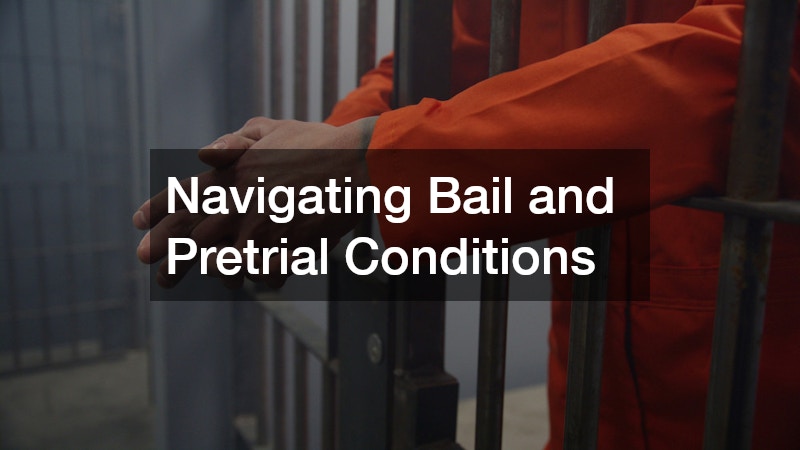What to do if You Are Arrested for DUI

Getting arrested can be a jarring and overwhelming experience, especially when it involves suspicion of driving under the influence. Emotions like fear, confusion, and embarrassment often run high in these situations, but how you handle the moments immediately following an arrest can significantly influence the outcome of your case. Knowing what to expect and how to respond can help you protect your rights and begin the process of addressing the legal challenges ahead. While each case is different, there are consistent steps that anyone facing this charge should consider.
When you are arrested for DUI, you are thrust into a legal process that may involve multiple stages, from field sobriety tests to court hearings and administrative penalties. These cases can impact more than just your driving privileges—they can affect your employment, finances, insurance, and health. That’s why it’s essential to understand the legal system and the practical actions you can take to begin regaining control of the situation. This blog outlines the key steps you should follow after a DUI arrest and highlights important areas of support and expertise that may become relevant throughout your journey.
Remaining Calm and Cooperative at the Scene

Staying calm during a traffic stop or arrest may seem complicated, but it can make a critical difference in how the situation unfolds. Law enforcement officers are trained to observe behavior, and any signs of aggression, panic, or noncompliance can escalate the problem or be used against you later. Keeping your hands visible, following instructions respectfully, and refraining from arguing or making unnecessary statements can help de-escalate tension. Your demeanor at the scene can affect the arrest and influence how your case is perceived in court.
If you are suspected of being under the influence after a collision, you may be transported to one of the local emergency rooms for medical evaluation. This can be an important moment in your case’s timeline. Medical assessments may include blood alcohol tests or checks for injuries, and the findings can play a role in legal and insurance matters. When you are arrested for DUI, what happens at the scene—and shortly after—can have lasting implications, so it’s essential to cooperate while also staying aware of your rights and what information you are providing.
Understanding Your Legal Rights Immediately
One of the most important things to remember when facing a DUI arrest is that you have rights; knowing them is key to protecting yourself. You have the right to remain silent, and you are not obligated to answer questions beyond providing basic identification. You also have the right to legal representation; invoking that right as soon as possible is crucial. Anything you say can be used as evidence, so choosing to wait until you speak with an attorney is often in your best interest.
Contacting a criminal attorney early in the process allows you to receive guidance tailored to your circumstances. An experienced legal professional can explain the charges you’re facing, review the arrest procedures for any rights violations, and begin building a defense strategy. In many cases, quick legal intervention can result in reduced penalties or the dismissal of charges. When you are arrested for DUI, time is of the essence, and understanding your legal rights from the start can make a meaningful difference in the outcome of your case.
Seeking Legal Representation Without Delay
After an arrest, time becomes a crucial factor in determining how your case proceeds. Securing qualified legal representation as early as possible gives you the best chance to understand your options and respond proactively. The legal system can be complex and intimidating, especially for individuals unfamiliar with court procedures or DUI laws. Waiting too long to hire legal counsel can limit your ability to challenge evidence or prepare a strong defense.
A skilled DUI defense attorney can analyze police reports, review test results, and identify any procedural errors that may have occurred during your arrest. They can negotiate plea deals, file motions to suppress certain evidence, or even get charges dropped depending on the circumstances. They protect your rights, advocate for a fair outcome, and minimize long-term consequences. If you’ve been arrested for DUI, contacting an attorney immediately is not just a recommendation—it’s a critical move toward defending yourself effectively.
Documenting the Details of Your Arrest

Accurate documentation is a valuable tool in any legal case, especially for DUI arrests. Reconstructing the events of your arrest while they’re still fresh in your mind can help your attorney identify inconsistencies, misconduct, or faulty procedures. Details like the time of the stop, your behavior, officer instructions, and whether field sobriety or breathalyzer tests were administered should all be recorded as soon as possible.
In some cases, a medical record review can also support your version of events, particularly if you have a health condition that may have influenced the outcome of a field test or your behavior at the time. Records related to medications, pre-existing conditions, or injuries sustained during the arrest can all become relevant. When you’ve been arrested for DUI, having a comprehensive account of both the physical and procedural aspects of your arrest can help build a more complete and credible defense.
Managing Medical Evaluations and Reports
Medical evaluations are often an overlooked part of a DUI arrest, especially if no injuries are immediately apparent. However, it’s important to seek medical attention if you were involved in an accident or are feeling unwell. Some injuries may not show symptoms immediately, and creating a medical report soon after the incident can be crucial for your health and legal defense. Prompt evaluation also ensures that a neutral third party clearly documents your condition.
If you sustained injuries or were involved in a collision that affected others, consulting with personal injury lawyers may be necessary. They can help determine whether you’re entitled to compensation or may be held liable for damages. Their involvement can also help clarify fault and assess how injuries might influence the overall legal picture. After being arrested for DUI, addressing the medical and legal implications of any injuries promptly helps you manage potential consequences more effectively.
Responding to Insurance and Liability Issues
Once legal proceedings begin, you’ll likely also have to deal with your arrest’s financial and logistical impact, especially if a vehicle was involved. Contact with your insurer is almost inevitable, whether it’s to report an incident, submit a claim, or respond to inquiries. Knowing what to say—and what not to say—is key to protecting your coverage and limiting liability. Insurance providers may use your statements or the details of the incident to justify premium increases or even deny coverage.
It’s important to remember that insurance companies are primarily looking out for their bottom line. Their adjusters and legal teams will review your case carefully to determine whether any policies were violated. If the DUI involved an accident, questions of fault and coverage become even more complicated. Consulting with your attorney before responding to detailed questions from your insurer can prevent you from inadvertently harming your case. Being arrested for DUI introduces a range of legal and financial complications, and how you interact with your insurer can have long-lasting effects.
Navigating Bail and Pretrial Conditions

One of the first concerns after an arrest is how to regain your freedom while awaiting trial. In many cases, posting bail allows you to return home instead of remaining in custody. The court will set bail based on the severity of the charges, your prior record, and whether you’re considered a flight risk. Conditions of release may also include travel restrictions, mandatory check-ins, or participation in monitoring programs. Understanding the bail process and your obligations under pretrial release is essential for staying in compliance and avoiding additional legal issues.
If bail is financially out of reach, working with a bail bonds agency may be necessary. These services typically charge a fee, often a percentage of the bail amount, in exchange for posting the full bond on your behalf. They may also impose conditions such as regular check-ins or collateral requirements. If you’ve been arrested for DUI, using a bail bonds service can help you navigate the immediate logistics of release, giving you time to consult with your attorney and prepare for the legal challenges ahead.
Preparing for Court and Legal Proceedings
Facing a courtroom after a DUI arrest can be intimidating, especially if you’re unfamiliar with legal terminology or procedures. It’s important to understand the charges, possible penalties, and what’s expected of you during each hearing. From arraignment through trial, the legal process will likely involve multiple appearances, and missing a date or violating a condition could worsen your situation. Careful preparation is essential, and that starts with understanding the scope of your case.
In more serious cases, such as repeat offenses, DUIs involving injury, or cases that cross into felony territory, consulting felony lawyers may be appropriate. These attorneys are trained to defend against more severe criminal charges and can offer strategies beyond what general legal counsel may provide. Their expertise becomes particularly valuable if you’re facing significant jail time, license suspension, or a permanent criminal record. When you’ve been arrested for DUI, the stakes can vary dramatically, and having the right level of legal support ensures you’re not facing those stakes alone.
Exploring the Impact on Finances and Records
A DUI arrest can bring not only legal consequences but also significant financial strain. Between court fees, legal representation, fines, and increased insurance premiums, the costs can add up quickly. If property damage, medical bills, or civil lawsuits are involved, the financial burden may extend well beyond the criminal case itself. Unexpected expenses, such as vehicle impound fees or mandatory installation of an ignition interlock device, can further complicate your financial situation. It’s important to assess the full scope of these costs early and create a financial plan to stay on top of them.
In severe cases where financial obligations become overwhelming, speaking with a bankruptcy lawyer may be necessary. While bankruptcy won’t eliminate criminal fines or court-mandated penalties, it may help in managing debt from related medical bills, lawsuits, or lost income. If you’ve been arrested for DUI, understanding the financial consequences and exploring all your options can prevent further damage to your long-term financial stability.
Taking Steps to Protect Your Future

Life after a DUI arrest can feel uncertain, but it’s possible to rebuild and move forward with the right steps. Attending any required educational or rehabilitation programs, complying with court orders, and avoiding further infractions all contribute to a more favorable long-term outcome. Taking responsibility early on and demonstrating a commitment to change can also influence how courts and potential employers view your case. Many states allow for expungement or record sealing under certain conditions, which can significantly affect future employment or licensing opportunities.
If your arrest involved a collision, especially one with injuries, consulting a car accident attorney can provide clarity on potential civil liabilities. These professionals can help you understand whether others might file claims against you and how to protect yourself legally and financially. Being arrested for DUI can have a ripple effect across many areas of your life, but with proactive steps and the right guidance, you can reduce the long-term consequences and protect your future.
Being arrested for DUI is more than a legal inconvenience—it’s a serious event that can affect nearly every aspect of your life, from your driving privileges to your financial stability and professional reputation. The process can be emotionally draining and logistically complex, involving multiple agencies, deadlines, and decisions that must be handled quickly and carefully. While the initial experience may feel overwhelming, knowing what to expect and how to respond can make all the difference in protecting your rights and minimizing the long-term impact.
Whether it’s staying calm during the arrest, consulting legal experts, managing health evaluations, or planning for court, each step you take after being arrested for DUI matters. The professionals you involve—from attorneys to insurance advisors to medical reviewers—can guide you through the maze of responsibilities and decisions ahead. By taking action early, documenting your case carefully, and leaning on the right expertise, you’ll be better positioned to face the challenges and move forward with confidence.


